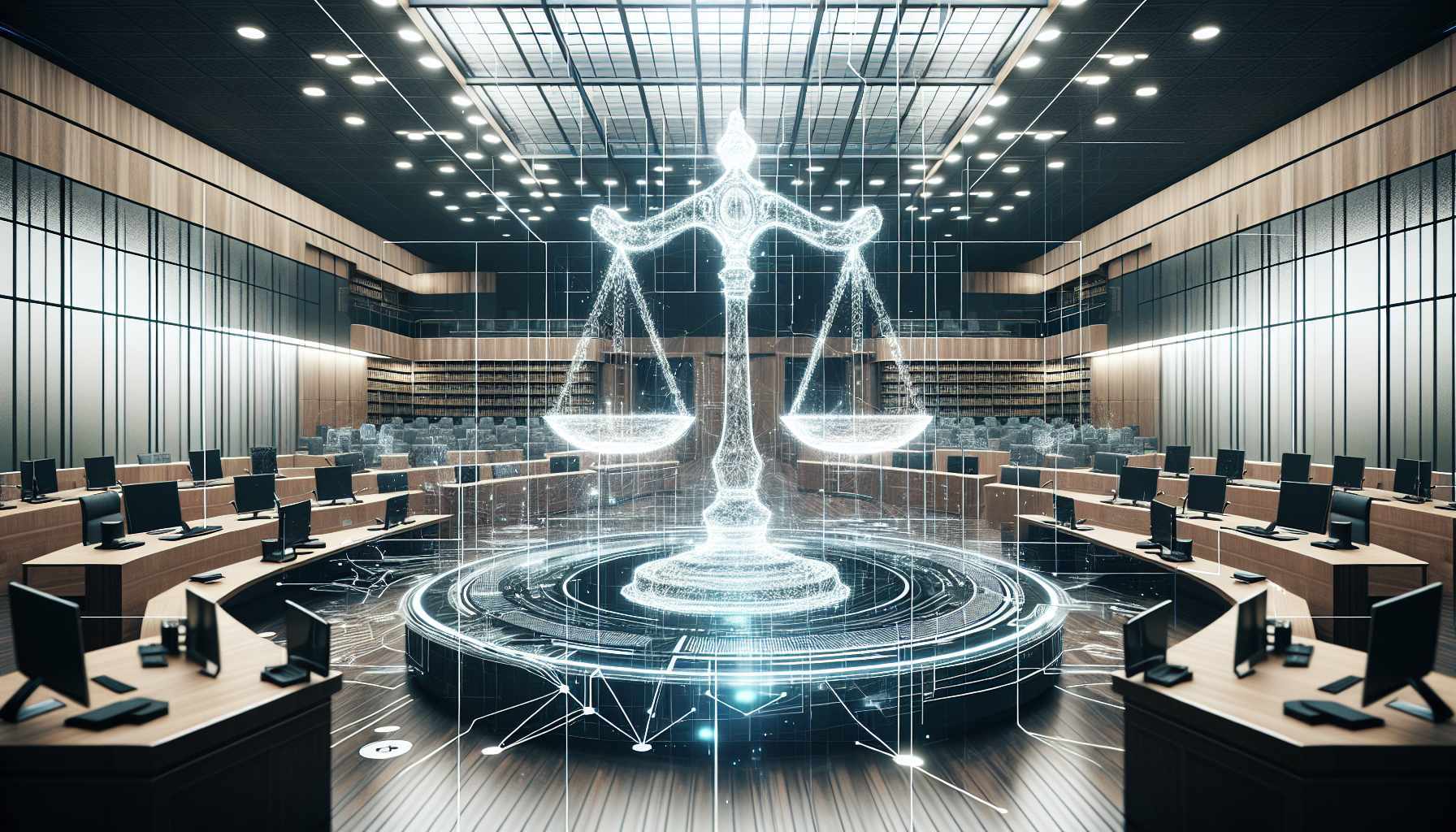
Navigating the Military Divorce Landscape
Military divorces inherently present numerous complexities that differentiate them from civilian divorces. Factors such as jurisdictional issues, division of military pensions, and unique service-related benefits all contribute to a specialized legal landscape. This specialized domain requires in-depth knowledge and expertise.
Paralegals in this field often face the challenging task of balancing these intricacies while maintaining efficiency. They must navigate a labyrinth of regulations that govern military benefits and retirement funds, while ensuring compliance with both state and federal laws. Additionally, addressing custody and visitation arrangements can be particularly daunting when one party is frequently deployed.
Enter ChatGPT: A New Dawn in Legal Assistance
As advancements in technology continue to revolutionize industries, the legal field is no exception. ChatGPT, a state-of-the-art large language model (LLM) by OpenAI, has emerged as a potent tool for legal professionals. By leveraging the power of artificial intelligence, ChatGPT provides on-demand assistance, streamlining various aspects of legal work.
The potential benefits of using ChatGPT in legal work are manifold. From automating repetitive tasks to offering quick summaries of legal documents, ChatGPT can significantly enhance the efficiency and accuracy of paralegal tasks. It allows for better resource allocation, giving legal professionals more bandwidth to focus on high-priority matters.
Also read:
Crafting Effective Prompts: The Art of Asking the Right Questions
To maximize the utility of ChatGPT, crafting precise and clear prompts is paramount. Well-structured inquiries can ensure that the AI provides relevant and accurate information. This is especially crucial in the context of military divorce cases, given their complexity.
Importance of Specificity and Clarity in Prompts:
- Specificity: The more detailed your question, the more targeted the answer.
- Clarity: Avoid ambiguous language to prevent misunderstandings.
Here are some examples of effective prompts for military divorce cases:
- General Information: “What are the unique considerations in a military divorce compared to a civilian divorce?”
- Jurisdictional Issues: “How does the Servicemembers Civil Relief Act (SCRA) impact divorce proceedings for active-duty soldiers?”
- Financial Matters: “What are the rules governing the division of military pensions in a divorce?”
Effective prompting not only yields better results but also enhances the overall efficiency of legal research and documentation.
Also read:
Streamlining Document Preparation
One of the most time-consuming aspects of legal work is document preparation. Here, ChatGPT can be particularly beneficial for generating initial drafts for petitions, responses, and agreements related to military divorces. This can drastically cut down preparation time and allow for more immediate client focus.
Generating Initial Drafts:
- Petitions: “Draft a divorce petition highlighting the military service background of the respondent and outlining the division of assets.”
- Responses: “Prepare a draft response to a divorce petition where the petitioner is an active-duty member stationed overseas.”
- Agreements: “Generate a preliminary divorce settlement agreement including details on military pension division and child custody terms.”
Techniques for Formatting and Refining Legal Documents:
- Utilize ChatGPT to format case citations correctly.
- Incorporate jurisdiction-specific language and clauses as needed.
- Revise drafts through multiple iterations for legal accuracy and completeness.
By systematically leveraging these capabilities, legal teams can improve both the quality and speed of their document preparation processes.
Also read:
Research Made Easy: Leveraging ChatGPT for Deep Dives
Conducting comprehensive legal research is another area where ChatGPT can offer substantial support. By fine-tuning search queries, paralegals can efficiently source statutes, regulations, and relevant case law.
Tips for Sourcing Statutes, Regulations, and Case Law:
- Use specific language: “Find cases related to the division of military pensions in California between 2015 and 2020.”
- Request summaries: “Summarize the Uniformed Services Former Spouses’ Protection Act (USFSPA) and its implications on divorce settlements.”
Structuring Prompts for Comprehensive Legal Research:
- Break down complex queries into smaller, manageable questions.
- Ensure context by including relevant case details and specifics.
- Ask for comparisons to understand different interpretations and applications of laws.
These methodologies streamline the research phase, saving time and ensuring thoroughness in legal investigations.
Also read:
Enhancing Client Communication and Support
Effective client communication is key to maintaining trust and ensuring clarity in legal proceedings. ChatGPT can assist in drafting clear and concise client correspondence, as well as creating informative FAQs and guides.
Strategies for Drafting Client Correspondence:
- Templates: “Generate a template for informing clients about changes in visitation schedules due to deployment.”
- Updates: “Draft an update for clients on new regulations affecting military divorce proceedings.”
Creating Informative FAQs and Guides for Clients:
- FAQs: “Create a list of frequently asked questions regarding military divorce and pension division.”
- Guides: “Develop a step-by-step guide for military members facing divorce, outlining key considerations and resources.”
These tools not only aid in clear communication but also empower clients by providing them with essential knowledge.
Also read:
Ethical Considerations and Best Practices
While integrating ChatGPT into legal work offers numerous benefits, it’s crucial to address ethical considerations and best practices to ensure responsible usage.
Ensuring Confidentiality and Data Security:
- Use anonymized data: Avoid including personally identifiable information (PII) in prompts.
- Secure channels: Utilize encrypted communication channels when interacting with AI tools.
Recognizing and Mitigating the Limitations of LLMs:
- Double-check outputs: Always verify the information provided by ChatGPT against reliable sources and legal databases.
- Human oversight: Ensure that a qualified legal professional reviews all AI-generated content before it’s finalized or presented to clients.
By following these guidelines, legal professionals can harness the power of AI while safeguarding client interests and ethical standards.
Also read:
Future-Proofing Your Practice: Continuous Learning and Adaptation
Staying ahead in the ever-evolving legal landscape requires a commitment to continuous learning and adaptation. Embracing AI and other technological innovations can provide a competitive edge.
Staying Updated with AI and Legal Innovations:
- Attend webinars and conferences on legal tech advancements.
- Subscribe to industry publications that cover AI trends and updates.
Encouraging Professional Development in AI Utilization:
- Offer training sessions for legal staff on effective AI tool usage.
- Promote cross-disciplinary learning to enhance tech competencies among employees.
By fostering an environment of continuous learning, legal practices can not only stay relevant but also thrive in an increasingly digital world.


